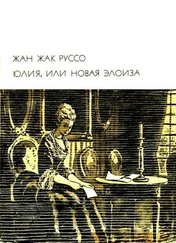Жан-Жак Руссо - Emile
Здесь есть возможность читать онлайн «Жан-Жак Руссо - Emile» — ознакомительный отрывок электронной книги совершенно бесплатно, а после прочтения отрывка купить полную версию. В некоторых случаях можно слушать аудио, скачать через торрент в формате fb2 и присутствует краткое содержание. Жанр: foreign_antique, literature_18, foreign_edu, на английском языке. Описание произведения, (предисловие) а так же отзывы посетителей доступны на портале библиотеки ЛибКат.
- Название:Emile
- Автор:
- Жанр:
- Год:неизвестен
- ISBN:нет данных
- Рейтинг книги:4 / 5. Голосов: 1
-
Избранное:Добавить в избранное
- Отзывы:
-
Ваша оценка:
- 80
- 1
- 2
- 3
- 4
- 5
Emile: краткое содержание, описание и аннотация
Предлагаем к чтению аннотацию, описание, краткое содержание или предисловие (зависит от того, что написал сам автор книги «Emile»). Если вы не нашли необходимую информацию о книге — напишите в комментариях, мы постараемся отыскать её.
Emile — читать онлайн ознакомительный отрывок
Ниже представлен текст книги, разбитый по страницам. Система сохранения места последней прочитанной страницы, позволяет с удобством читать онлайн бесплатно книгу «Emile», без необходимости каждый раз заново искать на чём Вы остановились. Поставьте закладку, и сможете в любой момент перейти на страницу, на которой закончили чтение.
Интервал:
Закладка:
Our first duties are to ourselves; our first feelings are centred on self; all our instincts are at first directed to our own preservation and our own welfare. Thus the first notion of justice springs not from what we owe to others, but from what is due to us. Here is another error in popular methods of education. If you talk to children of their duties, and not of their rights, you are beginning at the wrong end, and telling them what they cannot understand, what cannot be of any interest to them.
If I had to train a child such as I have just described, I should say to myself, "A child never attacks people, [Footnote: A child should never be allowed to play with grown-up people as if they were his inferiors, nor even as if they were only his equals. If he ventured to strike any one in earnest, were it only the footman, were it the hangman himself, let the sufferer return his blows with interest, so that he will not want to do it again. I have seen silly women inciting children to rebellion, encouraging them to hit people, allowing themselves to be beaten, and laughing at the harmless blows, never thinking that those blows were in intention the blows of a murderer, and that the child who desires to beat people now will desire to kill them when he is grown up.] only things; and he soon learns by experience to respect those older and stronger than himself. Things, however, do not defend themselves. Therefore the first idea he needs is not that of liberty but of property, and that he may get this idea he must have something of his own." It is useless to enumerate his clothes, furniture, and playthings; although he uses these he knows not how or why he has come by them. To tell him they were given him is little better, for giving implies having; so here is property before his own, and it is the principle of property that you want to teach him; moreover, giving is a convention, and the child as yet has no idea of conventions. I hope my reader will note, in this and many other cases, how people think they have taught children thoroughly, when they have only thrust on them words which have no intelligible meaning to them. [Footnote: This is why most children want to take back what they have given, and cry if they cannot get it. They do not do this when once they know what a gift is; only they are more careful about giving things away.]
We must therefore go back to the origin of property, for that is where the first idea of it must begin. The child, living in the country, will have got some idea of field work; eyes and leisure suffice for that, and he will have both. In every age, and especially in childhood, we want to create, to copy, to produce, to give all the signs of power and activity. He will hardly have seen the gardener at work twice, sowing, planting, and growing vegetables, before he will want to garden himself.
According to the principles I have already laid down, I shall not thwart him; on the contrary, I shall approve of his plan, share his hobby, and work with him, not for his pleasure but my own; at least, so he thinks; I shall be his under-gardener, and dig the ground for him till his arms are strong enough to do it; he will take possession of it by planting a bean, and this is surely a more sacred possession, and one more worthy of respect, than that of Nunes Balboa, who took possession of South America in the name of the King of Spain, by planting his banner on the coast of the Southern Sea.
We water the beans every day, we watch them coming up with the greatest delight. Day by day I increase this delight by saying, "Those belong to you." To explain what that word "belong" means, I show him how he has given his time, his labour, and his trouble, his very self to it; that in this ground there is a part of himself which he can claim against all the world, as he could withdraw his arm from the hand of another man who wanted to keep it against his will.
One fine day he hurries up with his watering-can in his hand. What a scene of woe! Alas! all the beans are pulled up, the soil is dug over, you can scarcely find the place. Oh! what has become of my labour, my work, the beloved fruits of my care and effort? Who has stolen my property! Who has taken my beans? The young heart revolts; the first feeling of injustice brings its sorrow and bitterness; tears come in torrents, the unhappy child fills the air with cries and groans, I share his sorrow and anger; we look around us, we make inquiries. At last we discover that the gardener did it. We send for him.
But we are greatly mistaken. The gardener, hearing our complaint, begins to complain louder than we:
What, gentlemen, was it you who spoilt my work! I had sown some Maltese melons; the seed was given me as something quite out of the common, and I meant to give you a treat when they were ripe; but you have planted your miserable beans and destroyed my melons, which were coming up so nicely, and I can never get any more. You have behaved very badly to me and you have deprived yourselves of the pleasure of eating most delicious melons.
JEAN JACQUES. My poor Robert, you must forgive us. You had given your labour and your pains to it. I see we were wrong to spoil your work, but we will send to Malta for some more seed for you, and we will never dig the ground again without finding out if some one else has been beforehand with us.
ROBERT. Well, gentlemen, you need not trouble yourselves, for there is no more waste ground. I dig what my father tilled; every one does the same, and all the land you see has been occupied time out of mind.
EMILE. Mr. Robert, do people often lose the seed of Maltese melons?
ROBERT. No indeed, sir; we do not often find such silly little gentlemen as you. No one meddles with his neighbour's garden; every one respects other people's work so that his own may be safe.
EMILE. But I have not got a garden.
ROBERT. I don't care; if you spoil mine I won't let you walk in it, for you see I do not mean to lose my labour.
JEAN JACQUES. Could not we suggest an arrangement with this kind Robert? Let him give my young friend and myself a corner of his garden to cultivate, on condition that he has half the crop.
ROBERT. You may have it free. But remember I shall dig up your beans if you touch my melons.
In this attempt to show how a child may be taught certain primitive ideas we see how the notion of property goes back naturally to the right of the first occupier to the results of his work. That is plain and simple, and quite within the child's grasp. From that to the rights of property and exchange there is but a step, after which you must stop short.
You also see that an explanation which I can give in writing in a couple of pages may take a year in practice, for in the course of moral ideas we cannot advance too slowly, nor plant each step too firmly. Young teacher, pray consider this example, and remember that your lessons should always be in deeds rather than words, for children soon forget what they say or what is said to them, but not what they have done nor what has been done to them.
Such teaching should be given, as I have said, sooner or later, as the scholar's disposition, gentle or turbulent, requires it. The way of using it is unmistakable; but to omit no matter of importance in a difficult business let us take another example.
Your ill-tempered child destroys everything he touches. Do not vex yourself; put anything he can spoil out of his reach. He breaks the things he is using; do not be in a hurry to give him more; let him feel the want of them. He breaks the windows of his room; let the wind blow upon him night and day, and do not be afraid of his catching cold; it is better to catch cold than to be reckless. Never complain of the inconvenience he causes you, but let him feel it first. At last you will have the windows mended without saying anything. He breaks them again; then change your plan; tell him dryly and without anger, "The windows are mine, I took pains to have them put in, and I mean to keep them safe." Then you will shut him up in a dark place without a window. At this unexpected proceeding he cries and howls; no one heeds. Soon he gets tired and changes his tone; he laments and sighs; a servant appears, the rebel begs to be let out. Without seeking any excuse for refusing, the servant merely says, "I, too, have windows to keep," and goes away. At last, when the child has been there several hours, long enough to get very tired of it, long enough to make an impression on his memory, some one suggests to him that he should offer to make terms with you, so that you may set him free and he will never break windows again. That is just what he wants. He will send and ask you to come and see him; you will come, he will suggest his plan, and you will agree to it at once, saying, "That is a very good idea; it will suit us both; why didn't you think of it sooner?" Then without asking for any affirmation or confirmation of his promise, you will embrace him joyfully and take him back at once to his own room, considering this agreement as sacred as if he had confirmed it by a formal oath. What idea do you think he will form from these proceedings, as to the fulfilment of a promise and its usefulness? If I am not greatly mistaken, there is not a child upon earth, unless he is utterly spoilt already, who could resist this treatment, or one who would ever dream of breaking windows again on purpose. Follow out the whole train of thought. The naughty little fellow hardly thought when he was making a hole for his beans that he was hewing out a cell in which his own knowledge would soon imprison him. [Footnote: Moreover if the duty of keeping his word were not established in the child's mind by its own utility, the child's growing consciousness would soon impress it on him as a law of conscience, as an innate principle, only requiring suitable experiences for its development. This first outline is not sketched by man, it is engraved on the heart by the author of all justice. Take away the primitive law of contract and the obligation imposed by contract and there is nothing left of human society but vanity and empty show. He who only keeps his word because it is to his own profit is hardly more pledged than if he had given no promise at all. This principle is of the utmost importance, and deserves to be thoroughly studied, for man is now beginning to be at war with himself.]
Читать дальшеИнтервал:
Закладка:
Похожие книги на «Emile»
Представляем Вашему вниманию похожие книги на «Emile» списком для выбора. Мы отобрали схожую по названию и смыслу литературу в надежде предоставить читателям больше вариантов отыскать новые, интересные, ещё непрочитанные произведения.
Обсуждение, отзывы о книге «Emile» и просто собственные мнения читателей. Оставьте ваши комментарии, напишите, что Вы думаете о произведении, его смысле или главных героях. Укажите что конкретно понравилось, а что нет, и почему Вы так считаете.












